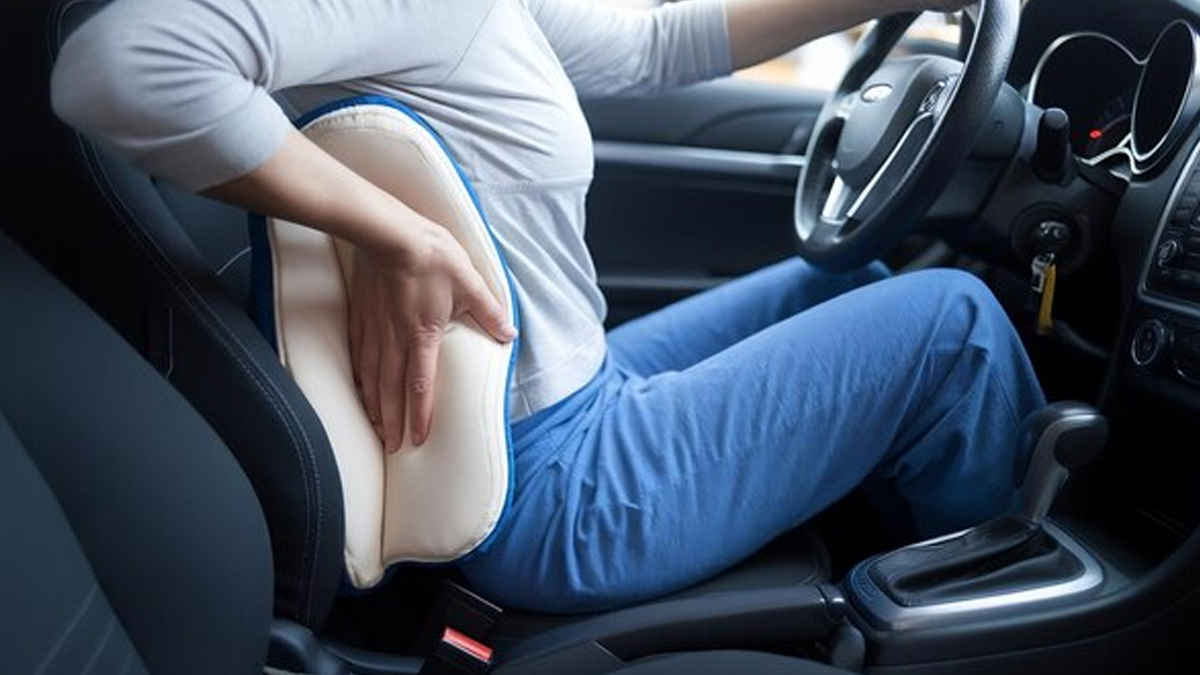
Does your back ache by the time you reach work? Or is your neck stiff even before your day has officially started? If you have attributed your office chair or poor posture at your desk as the cause, you may be overlooking another big culprit: your commute.
Table of Content:-
Whether you are driving, riding the metro, or squeezed into a rickety auto every morning and evening, your daily travel habits could be slowly but surely damaging your spine. It's not just about the duration; it’s also about the way you sit, what you carry, and how aware (or unaware) you are of your posture during these hours.
How Your Commute Habits Could Be Causing Back and Neck Pain
1. Long Sitting Hours = Stiff Spine

The human spine isn’t built to stay seated for long stretches, especially not in slouched or twisted positions. If you are sitting in traffic for an hour each way, hunched over a steering wheel or slumped in a seat with no lumbar support, your spine takes the hit. Over time, this compresses the lower back, tightens hip flexors, and weakens core muscles, leading to back pain that doesn’t seem to go away.
A cross-sectional study of 160 habitual car drivers (driving >2 hours/day for more than 3–5 years) reported significantly decreased cervical (neck) range of motion and increased forward head posture in individuals with neck pain or deficient proprioception of their neck position.
2. The 'Tech Neck' Phenomenon
If you’re a public transport commuter who spends the entire ride scrolling through your phone, chances are you have developed what doctors call 'tech neck.' Constantly looking down at a screen strains the neck and upper spine, often resulting in stiffness, soreness, and even headaches. It’s subtle at first, a little tension around your shoulders. But over months and years, it can evolve into chronic discomfort.
3. Heavy Bags on One Shoulder

Laptop? Lunchbox? Water bottle? We tend to load all of it into one bag and usually sling it on one shoulder out of habit. This results in your spine leaning abnormally and your muscles overcompensating on one side, frequently creating muscle imbalances, back strain, or even pinched nerves. This habit can eventually put your spine out of position.
The bag you carry matters a lot. Biomechanical modelling has revealed that wearing a handbag or single-shoulder bag puts compressive and shear forces on your lumbar spine much more than backpacks, despite identical weight. This imbalance over time puts pressure on muscles and spinal discs, according to a 2023 study.
Also Read: From Pain To Posture Issues: 5 Ways Tight Hips Affect Your Body, And How to Fix It
Simple Commute Tweaks That Can Help

1. Support Your Spine
If you're driving, adjust your car seat so that your back is supported and your knees are lower than your hips. Use a small lumbar roll or cushion if necessary. For public transport, sit up straight with both feet on the ground. Don't slouch or lean for prolonged periods.
2. Switch Up the Scrolling
Instead of looking down at your phone, consider holding it at eye level while reading or watching videos. Even better, listen to audiobooks or podcasts instead; this keeps your neck in a neutral position and relaxes your eyes.
3. Balance Your Bag
Backpacks are better than shoulder bags, but only if worn properly on both shoulders. If you must carry a handbag or tote, switch sides regularly to avoid overburdening one shoulder. And always ask yourself: Do I need to carry all this today?
Also Read: Back Pain In Young Working Professionals: A Growing Epidemic In IT Cities Like Bangalore
4. Move More
If you're driving through traffic or taking a long train ride, take micro-breaks to stretch your neck, roll your shoulders, or change your position. If you're able to stand on your ride (without injuring yourself or others), it's better than sitting in the same spot for so long.
5. Do a Daily Posture Check-In
Once you reach your destination, stretch out for a few minutes, especially your back, hips, and neck. This small act of care can counter the stiffness built up during travel.
Bottomline
Our commutes may feel passive, but they are shaping our bodies every single day. The way you sit in a cab, the bag you carry on your shoulder, or how long you look down at your screen, it all adds up. So if you have been tired of that stubborn back or neck pain, start paying attention to what happens before you reach your desk. Your spine will thank you.
[Disclaimer: This article contains information for informational purposes only. Hence, we advise you to consult your professional if you are dealing with any health issue to avoid complications.]
Also watch this video
How we keep this article up to date:
We work with experts and keep a close eye on the latest in health and wellness. Whenever there is a new research or helpful information, we update our articles with accurate and useful advice.
Current Version